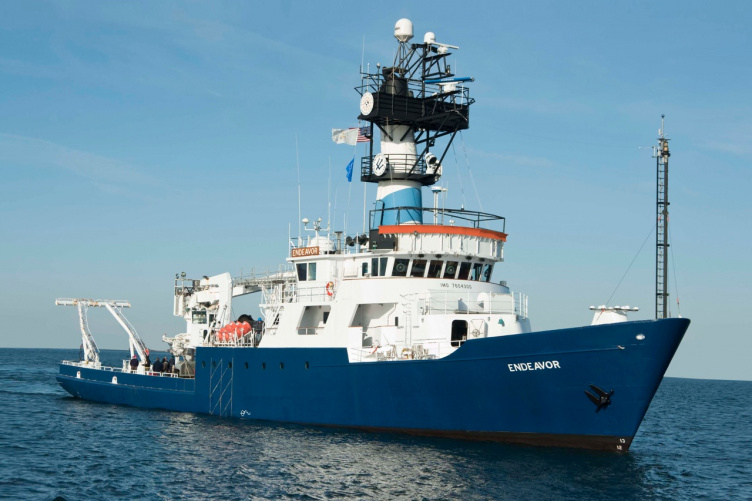
Research Vessel Endeavor
UNH’s ability to study and explore the ocean is about to expand, thanks to its inclusion in a new high-profile oceanographic consortium based in New England.
“The efficiencies gained through this collaboration will have long-term impact on our ability to better understand our oceans and their impact on our lives.”
UNH’s involvement in the newly formed East Coast Oceanographic Consortium will provide its scientists and graduate students with access to another research vessel and opportunities for further scientific collaboration. The consortium convenes three major institutions — the University of Rhode Island’s Graduate School of Oceanography, UNH and the Woods Hole Oceanographic Institution — along with 11 associate member institutions and universities with a shared goal to expand collaborative marine research and education opportunities among consortium members. The consortium members will take over operations of the R/V Endeavor, which is based at URI, for its remaining years. In the meantime, consortium members will submit a proposal to operate a new regional class research vessel.
“The consortium offers the opportunity for an already dynamic community of East Coast marine scientists to work more closely together,” says Larry Mayer, professor and director of the School of Marine Science and Ocean Engineering and the Center for Coastal and Ocean Mapping at UNH. “The efficiencies gained through this collaboration will have long-term impact on our ability to better understand our oceans and their impact on our lives.”
Direct, hands-on access to the new research vessel will enable UNH to contribute to a well-trained workforce of ocean-going scientists able to drive the next generation of ocean science questions and initiatives, according to Mark Milutinovich, the director for UNH’s Large Center Development.
“This high-profile consortium effort recognizes UNH’s world-class capabilities in ocean mapping and visualization, oceanography, marine biology and ocean engineering,” Milutinovich adds.
-
Written By:
Rebecca Irelan | Institute for the Study of Earth, Oceans, and Space | rebecca.irelan@unh.edu | 603-862-0990

















































